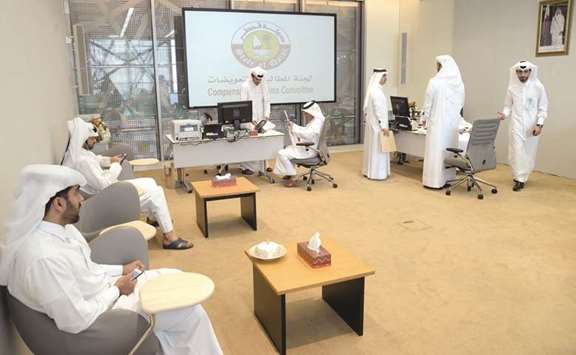The Compensation Claims Committee has started reviewing and classifying the complaints received at the office during the first week of its operation.
An official source told local Arabic daily Arrayah that the committee received 800 complaints and 266 calls over the past week. These are now being studied by legal experts to determine the steps that need to be taken.
Complainants whose files do not contain all the required documents will be contacted by the office and asked to furnish the missing papers, the daily states.
On Sunday, the committee received 188 complaints and 43 calls from individuals.
The source also pointed out that the committee would also receive 2,954 complaints registered with the National Human Rights Committee (NHRC). These are in addition to the 500-plus complaints received by Qatar Chamber from different private companies and organisations.
Further, the committee will receive all related complaints registered with different government entities and departments for perusal and due action.
Currently, the committee is accepting claims and complaints from individuals only, while those of government entities and organisations will be taken directly from them, according to Arrayah. The source said the committee will continue receiving complaints and claims that are linked to the ongoing blockade.
The decision to establish the committee was announced recently in order to pursue compensation claims potentially worth billions of dollars over the country’s blockade by the Saudi-led bloc.
Salem bin Rashid al-Muraikhi, Assistant Undersecretary for Legal Affairs at the Ministry of Justice, visited the committee on Sunday morning, He reviewed some of the complaints and also heard from the applicants during the visit.
Arrayah spoke to some of the Qataris who approached the committee for compensation in view of the damage caused to them by the blockade and the adverse impact on their interests in the siege countries.
Juma al-Buainain, one of them, said he had made a booking worth 62,000 Saudi riyals at a hotel in Makkah for Umrah with his family. He was not able to visit the place due to the crisis and asked for a refund of the sum. However, the hotel refused to return the money.
Al-Buainain then submitted a claim at the committee, supported by all relevant documents.
Salim al-Marri, another citizen, said he had lived in Saudi Arabia since 2009 and made “huge and diversified investments there exceeding QR70mn”. His projects and properties there include farmland, livestock, vehicles, houses and farm equipment. However, he could not access his property and business after the blockade came into force, the daily noted.
Besides, people in Saudi Arabia refused to offer any help as they feared that the Saudi authorities would take action against them for providing any assistance. Al-Marri stressed that he had lost all confidence in making investments or doing business in the blockading countries.
Besides damage caused by lack of access to business and property, the complaints also included cases where people were not allowed to continue their education or treatment in the siege countries, the daily added.

Officials at the Compensation Claims Committee.


